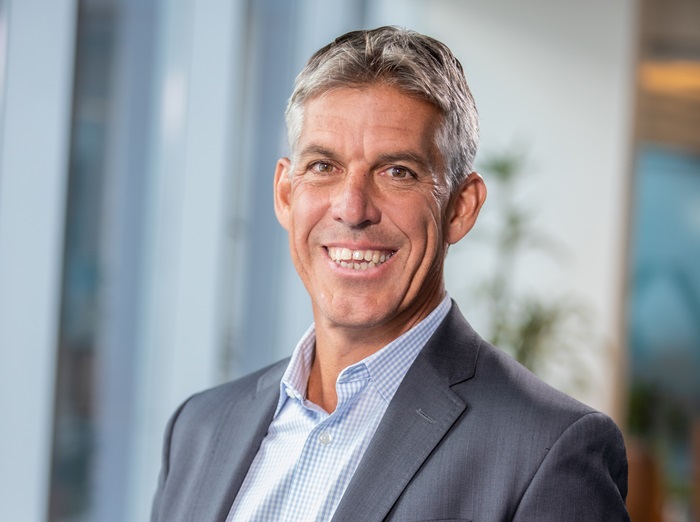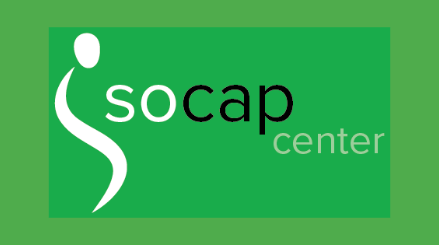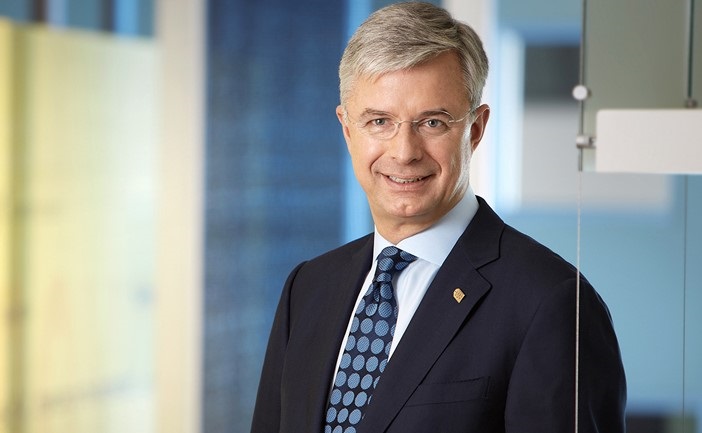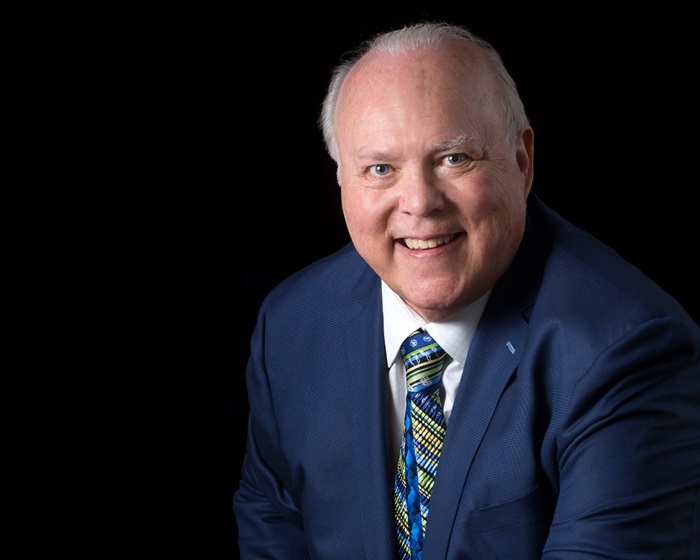Authentic CEOs: Antidote to the Counterfeit Culture
By Chris Benguhe, RaeAnne Marsh and Elaine Pofeldt | October 14, 2023 5:56 am
In an age when fakes, frauds and self-serving agendas are rampant, these genuine business leaders are real and really making a difference.
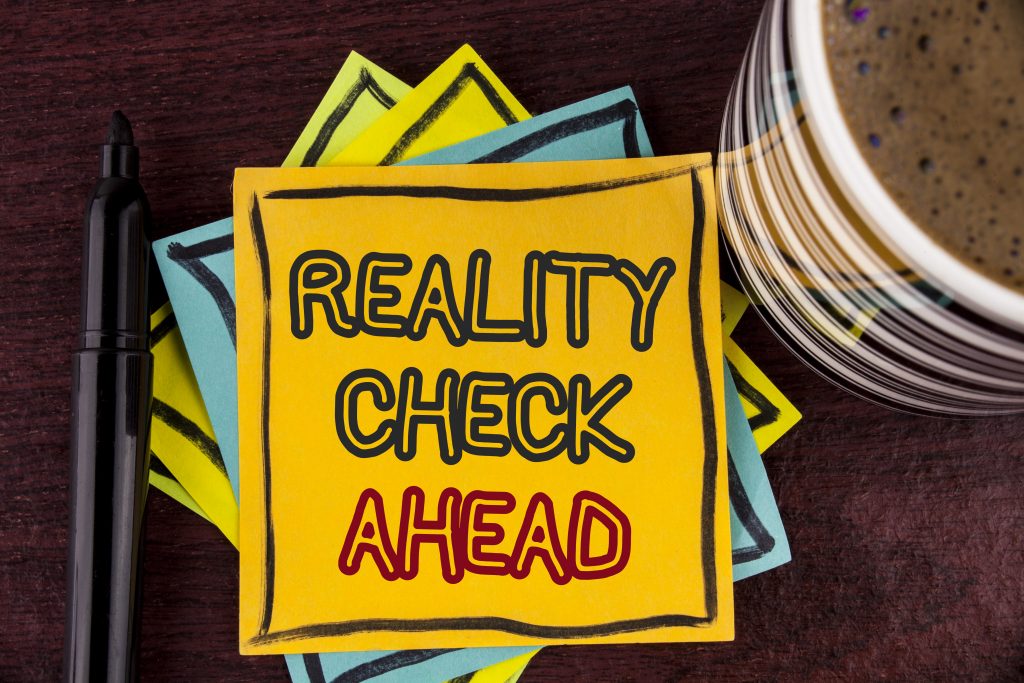
We believe the real bottom line is people. (IstockPhoto/Artur)
It is with great excitement and vigor that we proudly announce the launch of the new Dave Alexander Center for Social Capital and its official publication — the Social Capital Insider. And what better way to officially christen both than by honoring one of the most important features of Social Capital — authenticity — and the CEOs who embody and practice it day after day.
They are leading the way to showcase how real work, real values and real concern for others out-performs virtue signaling when it comes to improving the lives of their customers, their employees and those in the communities they serve.
The bottom line is we live in an age when misrepresentation has become way too commonplace. And we do not mean just the old-style conmen who fleece you in back-alley deals or phone scams and internet trolling. We are talking about widespread misappropriation of noble ideas, age-old platforms resuscitated and copied badly for the sake of manipulating us, and leaders who pretend to care about us when what they really care about is the profits and power they gain from us.
You do not have to look far to find bad remakes of great movies and classic songs for profit, or socio-cultural movements pretending to be like those of the past originally inspired by the fight for truth and justice but whose modern versions are aimed only at creating dissension and conflict for personal gain and power.
But this article is about business leaders, and, unfortunately, there are more than a few these days using pat lines and PR campaigns that make them sound great on paper, all the while mistreating the people who make them successful. They are giving business a bad name while hurting people, our society and our world with their insincere profiteering.
However, that is not what Social Capital leaders are all about at all. They are about the classic, timeless value of respecting people and doing so in open, honest and forthright ways. They do not pretend to be the flavor of the month, even if it means maybe losing some business or press in the short run. Because they know in the long run it will mean more to be true and authentically committed to what they value most — people and how to serve them through their business.
Most importantly, they are doing things that way because it is who they authentically are. The social capital leaders we have picked do things this way because they truly believe people are the whole point of profits and they run their companies to serve people, not the other way around.
Essentially, every one of the leaders we will honor as we grow and evolve our Center could be honored for this, so this month’s list of honorees is not meant in any way to exclude the future honorees. We are highlighting these leaders to launch our Center because they have something very specific and powerful to say or something they have recently done to showcase that power and commitment to authenticity right now.
We are truly so excited to bring this Center to life to be a true gathering place for people-centric leaders and their dynamic business strategies, and for its flagship publication — the Social Capital Insider — to provide a platform for trailblazing Social Capital leaders to share in their own words how they are changing society for the better.
Because we believe the real bottom line is people.
So here are this month’s 16 honorees sharing, in their own words, what they believe authenticity is all about.
Ed Bastian, Delta Air Lines
Authenticity means a few things to me. It’s not just how you feel — it’s how you make others feel. My No. 1 job is to serve my team by supporting and empowering them. I need to make sure they have the latest resources and opportunities to be their very best. I’ve learned that I can’t be an authentic leader by sitting in my office; it’s important to stay very close to our people, to listen, to be transparent and to communicate often. In turn, I encourage them to do the same with me.
Being authentic also means staying true to your values and to your purpose. At Delta, we work every day to help create a sense of belonging for our customers and each other. Everyone should return home after a Delta flight feeling valued, accepted and respected. Running an airline is the ultimate team sport, and we are stronger with our shared values and when we fulfill our purpose together.
Lastly, it’s easy to be authentic in good times but it’s even more crucial when things get tough. Delta is no stranger to challenges, and we always emerge stronger than before. It’s because we believe in ourselves and our mission of connecting the world better than any other airline. It’s all made possible by the authenticity, warmth and professionalism of the best group of professionals in the industry: the Delta team.
Seth Bogner, HeartPoint Global
According to the Harvard Business Review, leadership demands the expression of an authentic self. That begs the question: “What, in fact, is the authentic self?” I believe it starts with self-awareness. Am I as a leader operating from my own inflated ego, or am I operating and communicating through my higher self? My higher/authentic self is thoughtful, truthful and empathetic and operates for fairness and the greater good. That authentic self motivates and inspires others.
As the chairman and CEO of HeartPoint Global, I aim to express my authentic self in all my interactions and relationships, professionally and personally. This is a higher ideal, as it requires presence, emotional intelligence and the correct intentions. A crucial part of my journey is to maintain the discipline to identify when I am operating out of ego, which tends to control, or allowing myself to relate to others from a place of empathy. One needs to be able to take a big step backward in order to reflect and stay the course through self-awareness.
Our choice of words and how we communicate holds tremendous power. As leaders, we should strive to keep our intentions correct to communicate through our higher/authentic self. Using an elevated intention and emotional intelligence for the greater good is infectious and inspires others to align themselves with our example to follow. Ultimately, this change in outlook and intentions is what all businesses need to reach new levels of creativity and growth.
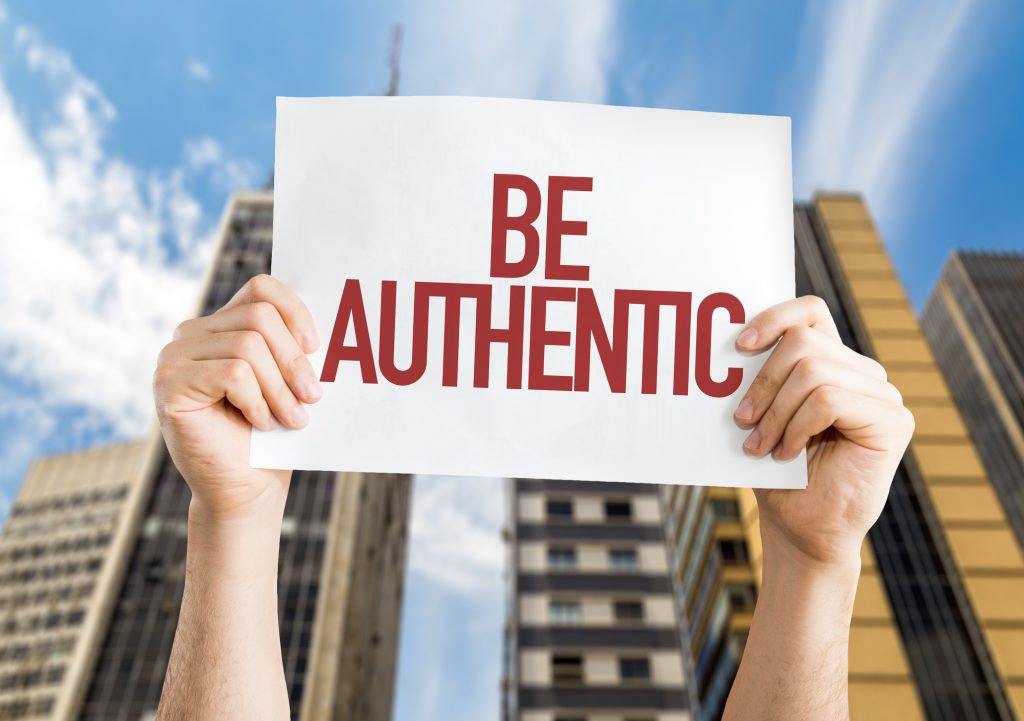
We listen carefully to our employer clients’ needs but never sacrifice the member experience. – Lorna Borenstein (Istockphoto/gustavofrazao)
Lorna Borenstein, Grokker
One of our core values at Grokker is that the member is at the center of the Grokkerverse. What that means is even though we are a B2B SaaS business that sells our well-being and mental health solution to large global employers, it is the employee on whom we base our product experience and design decisions; the employee is our true north.
We listen carefully to our employer clients’ needs but never sacrifice the member experience. We educate and collaborate to keep us all authentic to our brand promise to each member: to help them holistically “Be a Better You.” We do not have divided loyalties; the member comes first, and we know that if we take care of them, the business will take care of itself.
Authenticity also manifests itself in another of our corporate values: It’s Personal. What we mean by that is we know that work is fundamentally personal because it is where we spend the majority of our waking weekday hours, and so we want to both show up as our true selves and know each other as people, and give one another the benefit of the doubt when inevitable missteps occur. You can’t be your authentic self in an environment where you feel judged or lack a sense of belonging. So, we create ways to encourage open debate and help quieter voices be heard. I am frequently apologizing for my mistakes out loud and in public because there is no better way of role modeling authenticity as a positive value than pointing out your own flaws and saying you are sorry. It’s about giving everyone an environment where they can show up and be real.
Robert Glazer, Acceleration Partners
I believe that being authentic in business comes down to a very simple principle, inspired by a famous Gandhi quote related to happiness: “Happiness is when what you think, what you say, and what you do are in harmony.”
For me, authenticity is when what you think, what you say and what you do are all aligned. It’s not that everyone will or should agree with you; authenticity is when your actions are consistent with your beliefs and your words.
We understand that our company and its culture won’t be a fit for everyone, and we don’t try to be something we’re not. I believe this honesty is what makes us stand out to the people who matter most to us.
Marshall Goldsmith, Marshall Goldsmith
Peter Drucker was the Father of Modern Management and a mentor of mine. One great lesson that Peter taught me was: We spend a lot of time teaching leaders what to do. We do not spend enough time teaching leaders what to stop.
I am going to discuss the concept of authenticity from two perspectives, what to stop and what to do.
What to stop: Leaders and consultants often confuse two terms, honesty and disclosure. While it can be argued that harmful disclosure is authentic, it is certainly not professional. My biggest selling book, What Got You Here Won’t Get You There, goes into detail about the pitfalls of dysfunctional disclosure. Making destructive comments, winning too much and adding too much value are all examples of behavior that may be an honest representation of our views but is completely counterproductive.
What to do: The two greatest leaders that I have ever met are Frances Hesselbein, who led an amazing turnaround of Girl Scouts of the United States of America, and Alan Mulally, who led an amazing turnaround of Ford. Both were role models for living the values that they taught to others. They were always authentically in the role of being a professional and a leader. Although I knew both for decades, I never heard either of them make one comment that would be defined as unprofessional or dysfunctional.
As I learned from Frances and Alan, professional authenticity means being who you need to be in your role as a leader — so you can always do your best to serve others.

“Professional authenticity means being who you need to be in your role as a leader — so you can always do your best to serve others.” -Marshall Goldsmith (istockphoto/AndreyPopov)
Fred Hassan, Warburg Pincus
Authenticity in business, as in life, means being grounded in reality. It begins with the qualities of self-awareness. These include knowing who you are, who you are not, what you are good at, where you need help and what you really want in life — and having the courage of knowing what stares you in the face. Once one is authentic on the inside, one can be authentic on the outside. This means being vulnerable, perceptive, empathetic, respectful and candid with others as an important way of earning trust with others.
Being authentic is very empowering. On the inside, it brings inner strength and peace, because one is telling oneself the truth. Being authentic also is a power tool on the outside, because it amplifies the ability to earn trust with others. Trust is more sustainable if it is earned — not demanded. Once trust is earned, then one plus one plus one becomes five when it comes to building contagious and purpose-driven energy as an individual or as a leader of a team. Trust becomes a driver of human progress.
Authenticity also helps when trust needs repair or when trust comes under challenge by unexpected events.
Authenticity goes well beyond being a character trait. It is a driver of success.
Damien Huang, Cotopaxi
We are a human sustainability company, which means everything we do is filtered through the lens of impact on people. Our work is to create a business that sustainably enriches the lives of our community and contributes toward human prosperity. That includes our customers, our employees, our partners and those impacted by the work of our Foundation. This is the premise upon which Cotopaxi was founded — to do good through business — and part of our mission to end extreme poverty in our lifetimes while bringing joy and connection to each other through outdoor adventure.
Our team, from the founder to our most recent hire, is built to support those initiatives and uphold those values. We speak of them regularly, and we conduct ourselves in our work by integrating a sustainable, people-first philosophy into all company actions. We are proving that a thriving business can also have an extraordinary positive impact on the world. Authenticity for us is to accept those principles as second nature, and to commit wholeheartedly to their importance in how we act.
Jasmine Jirele, Allianz Life Insurance Company of North America
Being authentic in business can take on several forms. Three stand out for me:
- First, successful companies create a culture that encourages and rewards employees and leaders for being authentic — in bringing their “whole selves” to work and in demonstrating authenticity in how they approach their work. This means demonstrating courage, self-awareness, vulnerability and transparency.
- Successful companies are true to their purpose, or their mission. For example, at Allianz Life, we use our purpose, “We Secure Your Future,” as a guidepost for our work and to make sure we are focusing on the things that will advance our mission of improving financial security for Americans in retirement.
- Successful companies understand their strengths and core competencies, and “stick to their knitting.” This includes how and where a company engages in the community, the markets in which it operates, how it supports employees and how it makes decisions.
At Allianz Life, we take our focus on financial security to the community by supporting partners who are breaking down barriers to financial equity and inclusion. We operate in products that focus on retirement risk management, and we price and manage our products for long-term sustainability. We treat our employees as our strongest asset and invest in their development. And we make business decisions that uphold our values of respect, inclusion, caring and excellence. The long-term benefits far outweigh any short-term upside of straying from our core.
Brian Niccol, Chipotle
“Authenticity Lives Here” is one of Chipotle’s core values. We remain committed to that more today than ever, and we will continue to grow our people with the same level of care that goes into our food. Chipotle’s culinary, combined with talented leaders and a thriving culture, is our recipe for growth for many years to come. I, along with the rest of the organization, strongly believe that how we grow our food is how we grow our future.
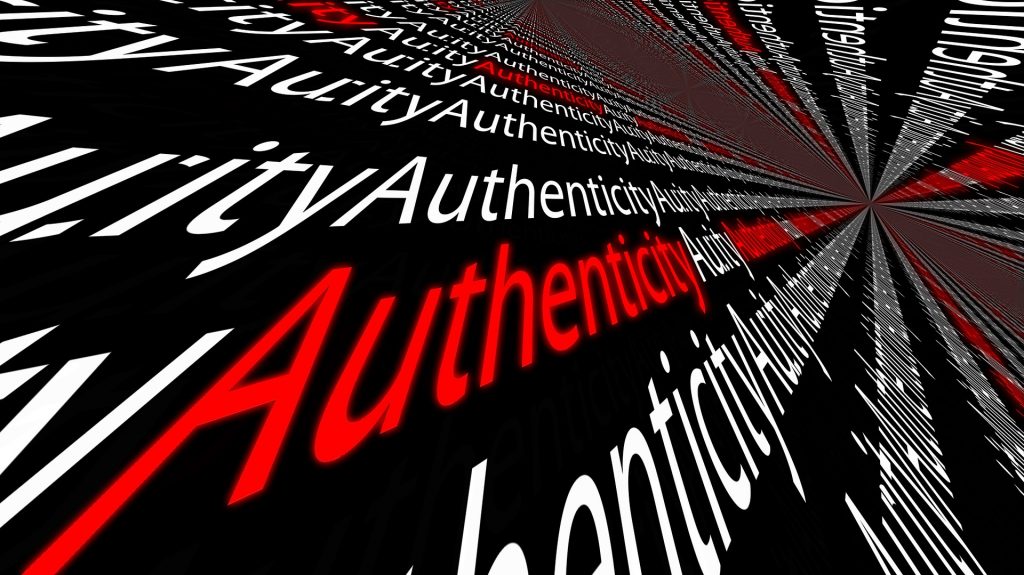
Authenticity is a practice, not a pre-packaged brand of plug-and-play behaviors that we’re born with. – Garry Ridge (Photo: Pixabay/geralt)
Tom Nolan, Kendra Scott
If you want to be authentic as a business, you have to be willing to be open — not only with your customers but with your employees, too. And that’s why authenticity feels so hard to achieve, because it requires a level of transparency and trust that isn’t how a lot of organizations want to operate. But that risk comes with a hefty reward: building trust with the people who matter most.
Antonio Nuño, Someone Somewhere
To me, being authentic starts with vulnerability. There’s a lot of ego in the business world and most leaders feel a lot of pressure to show only their victories and genius moments. But when you also share your mistakes, your worries and your insecurities with your community (e.g., your team, mentors, investors or customers), that’s when a real connection is built. A little humor also helps build more authentic relationships by reminding us that we shouldn’t take everything so seriously.
Penny Pennington, Edward Jones
I believe authenticity is inextricably tied to trust. And trust comes from always ensuring that your video matches your soundtrack. You have to say what you’ll do and do what you say. That’s very important to us at Edward Jones. After all, trust is the cornerstone of our business. People are trusting us to help them achieve what’s financially most important to them and prepare for their and their family’s futures, something we don’t take lightly. We work hard to establish and nurture that trust, and it’s why so many of our clients will recommend us to friends and family members.
On a broader scale, our ability to be authentic — and to generate trust from our clients, colleagues and the communities we serve — extends from our commitment to our purpose. That sense of purpose shows up in our actions, in what we invest in to be more innovative, and in the way we foster relationships with all our stakeholders. We work this way because it’s the right thing to do, yes, but also because it benefits everyone we seek to serve. That’s why our purpose comes at the headwaters of every decision we make, the strategies we set for ourselves, the outcomes we desire and the way we measure our success.
Garry Ridge, WD-40 (formerly)
When we talk about authenticity in leadership, there’s a tendency to assume that authenticity is built of desirable traits that are already solidly well-established. And leaders only have to have the courage and dedication to consistently lead from that genuine place in their hearts. But I would like to offer this new idea: The authenticity in our leadership styles is a work in progress, a journey over time, defined by the characteristics we must intentionally cultivate — even if they don’t necessarily come naturally or easily. Authenticity is a practice, not a pre-packaged brand of plug-and-play behaviors that we’re born with.
For me, it starts with my sincere and authentic commitment to self-improvement every day. I keep a note by my computer that challenges me with the question, “Am I being the person I want to be right now?” Who is this person? I want to be able to always say, “I’m grateful. I’m caring. I’m empathetic. I’m reasonable. I’m a listener. I have a balanced opinion. I’m curious. I’m a learner. And I throw sunshine, not shadow.” I see this list of characteristics as often as 20 times a day and it serves as a reinforcement and reminder of how I most authentically want to show up in the world.
Because developing authenticity is a journey, it can also be disrupted or stolen if we’re not always mindful of our behavior choices. We’re all just vulnerable human beings bumbling down the road of life, doing our best. But every now and then, thieves will jump out of the woods and drag our best selves into the woods and rob us of our highest intentions. As authentic as our ideal characteristics might be, they can be stripped from us before we even know it by stress, distraction, triggers, disappointment, frustration, anxiety, etc. We can’t be complacent and think that our cherished authentic characteristics are safe. We have to protect them every day. Sometimes many times a day.
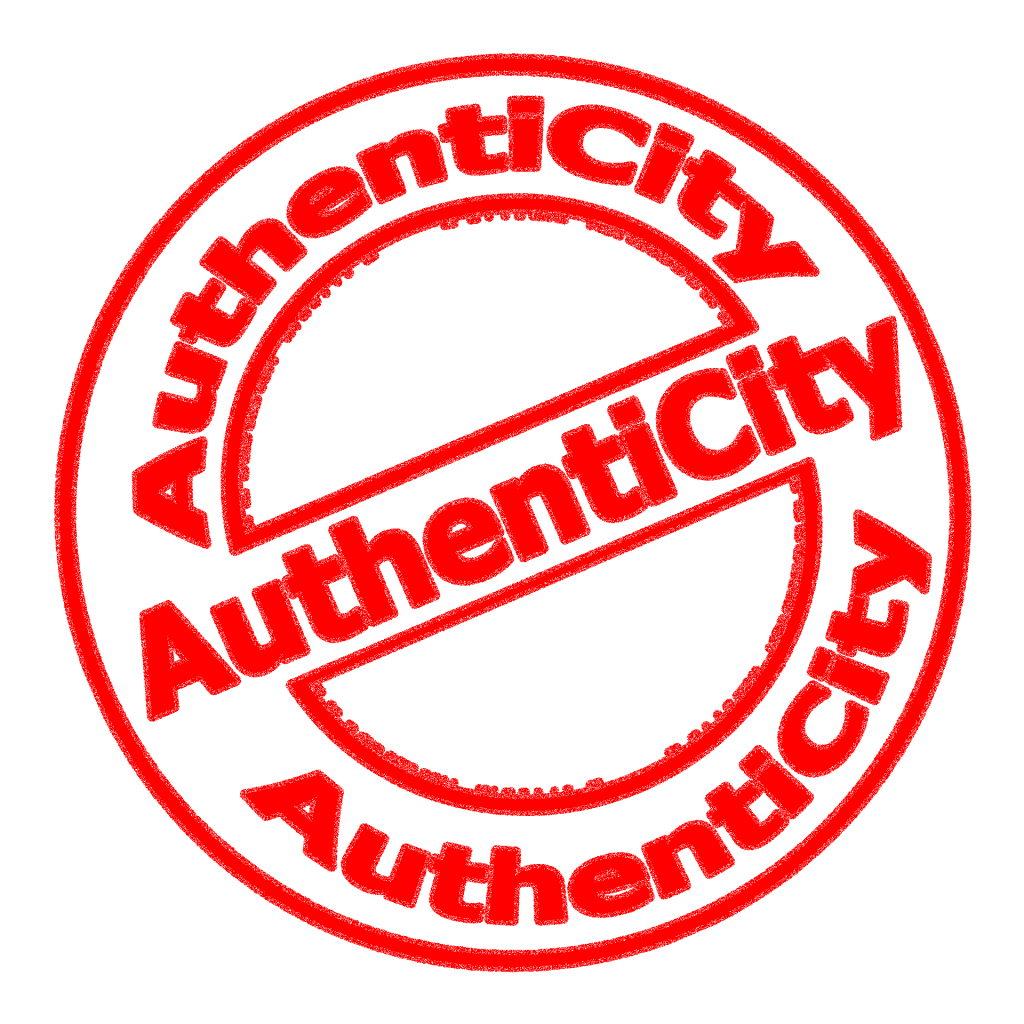
“Being an authentic leader also means being a trusted leader not just for some but for all people.” -Chris Todd (Photo: Pixabay/geralt)
Brian Scudamore, 1-800-GOT-JUNK?, O2E Brands
I have always believed that trust is everything when building a business and a team. If people don’t trust you, they won’t follow you and they won’t grow with you. How do you build trust? You be authentic. And that means being vulnerable. Being real.
It always blows my mind when people try to be someone else — someone they think others want them to be. No one buys it! Because it’s not authentic. People can tell.
So, my rule: Always be myself.
Chris Todd, UKG
Successful and inspiring leaders understand that leading is not extra work, it’s the work. Being all in on leading and having true care and compassion for people is foundational to authentic leadership. That starts with transparency and vulnerability. Being vulnerable and modeling a growth mindset demonstrates to others that there are many paths to success. This goes hand in hand with surrounding yourself with a diverse team who bring different perspectives, experiences and viewpoints.
For me, being an authentic leader also means being a trusted leader not just for some but for all people. Being a “For All” leader is something we’ve adopted at UKG from our colleagues at Great Place To Work and looks at leading through nine high-trust behaviors: sharing, celebrating, hiring, caring, developing, thanking, listening, speaking and inspiring. These behaviors cultivate high trust and enable authentic leadership that creates inclusive and productive teams. If you’re serving every individual in your company in an authentic way, then you’re doing your job as a leader — and positive business results will follow.
Walter White, Allianz Life Insurance Company of North America
Authenticity in business can be inferred from the degree of alignment between the public persona of a company, typically conveyed through its marketing messages, and the ethos of that company implicit in its business model, operating practices and internal culture. Do company values inform interactions with all stakeholders — customers, employees, shareholders and the local community — in a consistent way?
In a world where cynicism about most institutions has grown, such that significant values-based inconsistencies are expected and reviled, authenticity and alignment are increasingly rare and valuable. Although authenticity is not often tracked as a key performance indicator, companies would be well-served to identify ways to assess it in an objective way and to understand the conditions under which it would suffer. As we all quickly learn when getting a car serviced, alignment is a good thing!

